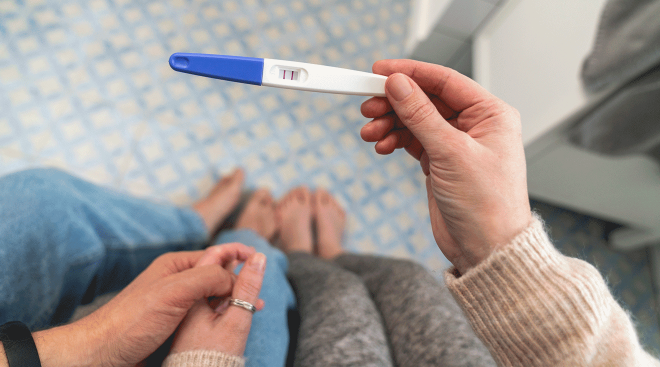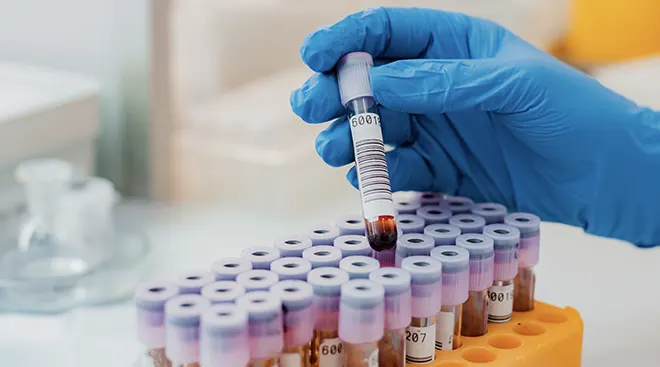Should I Get Genetic Testing?
First, don’t take it personally. She’s not singling you out for any reason. All pregnant women are offered some form of testing for genetic problems. Now, deciding whether you want to have it done is completely personal. You will want to weigh different factors, including baby’s risk for genetic problems.
Assessing baby’s risk
At one of your early prenatal visits, your doctor will ask you and your partner a lot of questions about your families and your health history. Knowing your ages, ethnic backgrounds, family histories and personal medical histories can help the doc pinpoint what genetic diseases, if any, have a possibility of affecting your child. If it looks like your baby is at higher-than-normal risk of inheriting a genetic disease, your doctor might recommend specific genetic testing.
Some of the genetic diseases that are more common in people of specific backgrounds include: sickle cell anemia (most common in people of African heritage), thalassemia (occurs most frequently in people of Italian, Greek, Middle Eastern, Asian and African ancestry), Tay-Sachs disease (most common among Ashkenazi Jews) and cystic fibrosis (most likely to occur if there’s a family history of cystic fibrosis — people with Caucasian background are more likely be affected than other groups).
Deciding whether or not to test
Some parents-to-be confuse getting genetic testing with deciding whether or not “to keep the baby” if there are any potential problems. Remember: Just because you have genetic testing doesn’t mean you’d end your pregnancy. Instead, the information can be helpful to you and your doctor and baby’s birth. For example, if the testing found baby has a special medical need, you could make arrangements to deliver at a medical center with specialists in that area of medicine so baby can be treated from the moment she’s born. It could also help you mentally prepare for any specific needs you may have to handle. Of course, it’s your choice. There’s no right answer; only the answer that’s right for you and your family.
Genetic tests you can get
If a thorough medical history suggests the possibility of a genetic disease, your doctor will probably recommend that you and your partner be screened to see if either (or both) of you carry that gene through a blood test. This is often done as part of your initial blood work at your first OB appointment. The process is fairly simple and relatively painless: A lab technician or nurse will draw blood from your arm, which will be sent to the lab for analysis. If either (or both) tests are positive for the abnormal gene, your doctor will offer you some more intensive tests.
Further genetic testing can be done in the first trimester through chorionic villus sampling (CVS). In this test, a highly trained doctor gets a sample of your placental tissue with the help of an ultrasound. The sample will be tested for genetic issues, and since it has the same genetic makeup as your baby, it can give you an idea of whether or not baby carries certain diseases. In the second trimester, you may want amniocentesis, in which the doc will remove a small amount of amniotic fluid and test it for genetic abnormalities. Both tests are highly accurate (think 98 to 99 percent accuracy), but false positives, false negatives and inconclusive results are still a possibility.
The quad screen is another test you may be offered. It estimates the risk of your baby having Down syndrome or a neural tube defect such as spina bifida.
For more on these and other prenatal tests, go here.
Bottom line: Talk to your doctor openly about any genetic risks to your baby, and carefully consider all of your options.
Please note: The Bump and the materials and information it contains are not intended to, and do not constitute, medical or other health advice or diagnosis and should not be used as such. You should always consult with a qualified physician or health professional about your specific circumstances.
Plus, more from The Bump:
Your Guide to Prenatal Tests and Doctor Visits
—Larry Kieft, MD, OB/GYN, Poudre Valley Medical Group, Fort Collins, Colorado
Navigate forward to interact with the calendar and select a date. Press the question mark key to get the keyboard shortcuts for changing dates.




















































